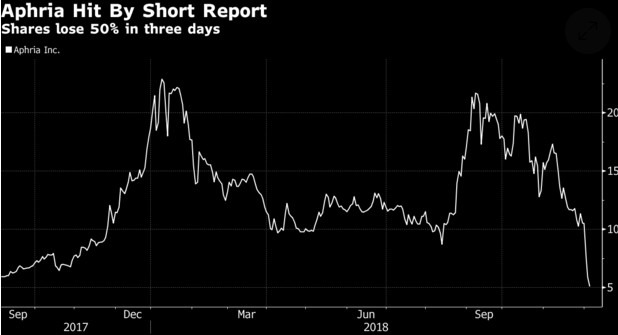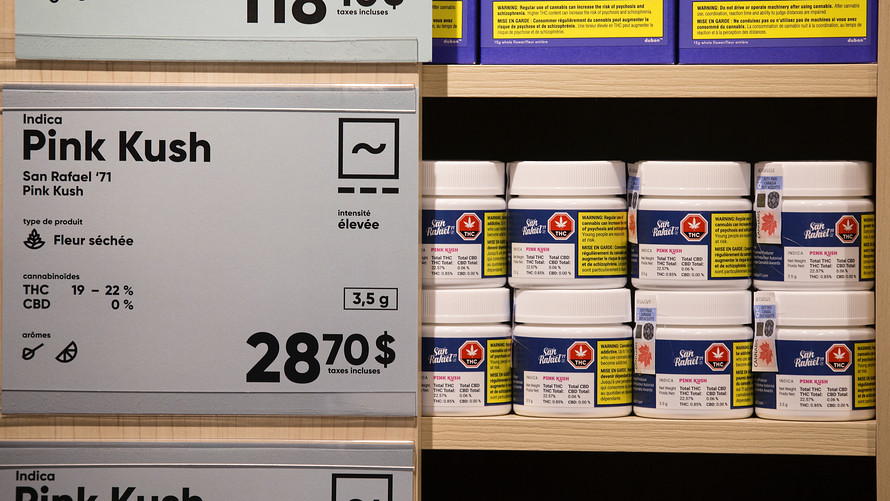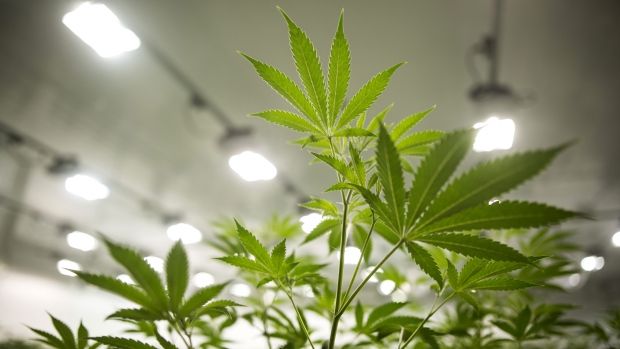MADISON – When a state senator voted this year to expand access to medical marijuana in Wisconsin, he did so as a relatively new investor of a Canadian pot producer with global ambitions.
According to public disclosures reviewed this week by USA TODAY NETWORK-Wisconsin, Sen. Frank Lasee of De Pere in 2016 bought $5,000 to $50,000 in the stock of Ontario-based Canopy Growth Corp.
The company sells marijuana-based products in dried, oil and capsule forms, and touts operating more than half a million square feet of production facilities. Its core brands include Tweed, Bedrocan and Mettrum.
In recent announcements, Canopy Growth has called medical marijuana patients its highest priority while describing plans to expand production for recreational users in the future. It says rapper Snoop Dogg is a business partner.
Lasee disclosed his stock in May as part of annual financial reports covering the preceding year when he wrote simply “TWMJF,” which is Canopy Growth’s ticker symbol for out-of-Canada stock trading. The company’s stock is traded on the Toronto Stock Exchange as “WEED.”
USA TODAY NETWORK-Wisconsin requested an interview with the Republican senator to discuss his stake in the company on Aug. 7. After Lasee had not responded for two days, the news organization reached him at an old campaign phone number. He told a reporter to call his Capitol office and then hung up. Lasee hasn’t since returned messages seeking comment.
Lasee’s views on marijuana are unclear. In past campaigns, including a failed bid for Congress last year, he has billed himself to voters as a business-friendly fiscal conservative. Much of the legislation he has authored this year touches on business, school or local issues. None involves drug policy.
“If it’s a good enough investment for Frank, then it’s good enough for people who benefit from it medically,” Erpenbach said.
In February, Lasee joined 30 other senators in voting to allow the possession of medical cannabinoid oil, or CBD oil. Supporters of the oil argue it can help children who suffer from seizures.
Lasee voted against an amendment proposed by Democrats to allow the production of CBD oil in the state. The amendment failed along party lines.
Lasee didn’t speak on the Senate floor in February about his votes or his broader views of marijuana. Gov. Scott Walker signed the CBD oil legislation into law two months later.
Lasee’s votes could present a conflict of interest because Canopy Growth produces CBD oil. But the company doesn’t currently operate in Wisconsin or anywhere else in the United States because of federal drug prohibitions, said Canopy Growth spokesman Jordan Sinclair.
“It’s just not prudent for us,” Sinclair said. “The risk just isn’t worth the reward.”
Sinclair said Canopy Growth produces marijuana products exclusively for medical purposes in Canada, Germany, Chile and Australia. The company is also expanding operations in advance of pledges by Canada’s ruling party to legalize recreational marijuana next year, he said.
“Our international ambition continues. We want to operate anywhere where there is a clear federal framework,” Sinclair said.
In training sessions on conflicts of interest, state ethics authorities caution lawmakers to avoid situations where using their official position could produce a disproportionate and substantial personal benefit. Among other factors, when a lawmaker invests in a company, how much they invest and their awareness of their stake could factor into an official review, said Brian Bell, a spokesman for the state’s ethics watchdog.
Jay Heck, executive director of Common Cause in Wisconsin, a group that advocates for clean government, said he didn’t see a conflict of interest with Lasee voting for CBD oil while he owned stock in Canopy Growth. But he said Lasee should explain the vote.
“As a public official, I think that’s a natural question for constituents or others to ask,” Heck said. “If he has a financial interest in this company that would profit from the expansion of marijuana… then it would be good to know how he squares that with legislation that could profit him.”
Lasee previously voted in favor of possessing CBD oil in January 2016 as a member of the Senate’s public safety committee. His vote helped advance the proposal, but it failed to pass the full Senate until the current legislative session.
For public disclosures filed with ethics authorities this year, Lasee listed owning stock in one company besides Canopy Growth: Apple, the consumer electronics maker. He wrote Apple’s actual company name on his disclosure form, rather than use a ticker symbol as he did for Canopy Growth.
The senator’s use of the ticker symbol even confused a member of his staff. After USA TODAY NETWORK-Wisconsin first contacted Lasee’s Capitol office about his investment in the business, an aide asked for clarification because she couldn’t find the company’s name listed on his disclosure form.
CBD oil is the only form of medical marijuana allowed under state law in Wisconsin. Democrats have proposed legislation in recent years that would expand access to other forms of medical marijuana with prescriptions and to recreational marijuana. A bipartisan bill this year would also decriminalize small amounts of marijuana for any use. None of the bills has gained traction.
Voters have twice elected Lasee to the state Senate since 2010. The seat he holds is next up for election in 2018. He was previously elected to the state Assembly from 1994 to 2008.
credit:postcrescent.com













